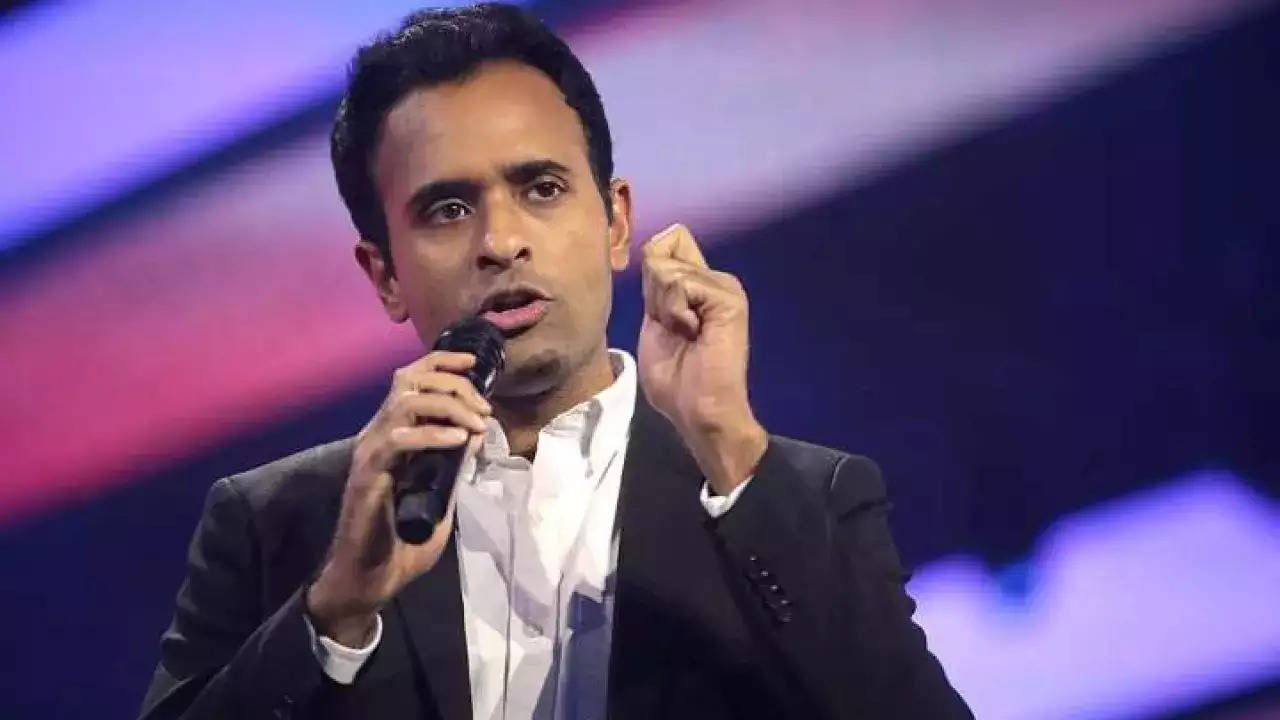World
Voting Rights: ‘Discriminatory’: Black Americans wary of Vivek Ramaswamy’s voting test plan

[ad_1]
In a stark reminder of the struggles during the Civil Rights Movement, JoAnne Bland, who crossed the Edmund Pettus Bridge on Bloody Sunday in 1965, reflects on the importance of voting rights, reported USA Today. Bland, now 70, emphasizes her dedication to preserving the right to vote, despite ongoing challenges.
The concerns arise as Republican candidate Vivek Ramaswamyproposes a civics test for voters aged 18 to 24, similar to the test immigrants take to become U.S.citizens. Ramaswamy suggests that earning the right to vote through a test or six months of military or first-responder service would instill a greater value for young voters.
However, some Black Americans draw parallels between Ramaswamy’s proposal and historical literacy tests used to deny voting rights. These tests, adopted by some southern states after the Civil War, were designed to be difficult and discriminatory, contributing to low Black voter registration.
Natasha Murphy, Chief of Staff for Black Girls Vote, notes discomfort among voters, particularly due to the historical context of tests being used to disenfranchise specific groups.
Historical literacy tests included absurd questions such as “How many jelly beans are in this jar?” and “How many feathers are in a chicken?” Flonzie Brown-Wright, who attempted to register to vote in 1964, recalls questions about interpreting the Mississippi Constitution, which she had not been taught in her segregated school.
Black voters express concerns that Ramaswamy’s proposal could be a modern version of discriminatory practices, impacting a progressive demographic. They argue that civic education is important but should not be tied to voting eligibility.
Ramaswamy defends the proposal, emphasizing the need for basic civic knowledge among voters. He compares it to the existing test for naturalized citizens and suggests it could foster unity and a sense of identity.
However, legal experts question the feasibility of implementing such a test. Constitutional amendments typically require approval from two-thirds of the House and Senate and ratification by three-fourths of state legislatures. Critics argue that the proposal would need to override existing constitutional amendments, including the 26th Amendment, which grants 18-year-olds the right to vote.
As debates continue, the proposal faces scrutiny for its potential impact on democratic principles and the accessibility of voting rights, particularly for younger voters.
The concerns arise as Republican candidate Vivek Ramaswamyproposes a civics test for voters aged 18 to 24, similar to the test immigrants take to become U.S.citizens. Ramaswamy suggests that earning the right to vote through a test or six months of military or first-responder service would instill a greater value for young voters.
However, some Black Americans draw parallels between Ramaswamy’s proposal and historical literacy tests used to deny voting rights. These tests, adopted by some southern states after the Civil War, were designed to be difficult and discriminatory, contributing to low Black voter registration.
Natasha Murphy, Chief of Staff for Black Girls Vote, notes discomfort among voters, particularly due to the historical context of tests being used to disenfranchise specific groups.
Historical literacy tests included absurd questions such as “How many jelly beans are in this jar?” and “How many feathers are in a chicken?” Flonzie Brown-Wright, who attempted to register to vote in 1964, recalls questions about interpreting the Mississippi Constitution, which she had not been taught in her segregated school.
Black voters express concerns that Ramaswamy’s proposal could be a modern version of discriminatory practices, impacting a progressive demographic. They argue that civic education is important but should not be tied to voting eligibility.
Ramaswamy defends the proposal, emphasizing the need for basic civic knowledge among voters. He compares it to the existing test for naturalized citizens and suggests it could foster unity and a sense of identity.
However, legal experts question the feasibility of implementing such a test. Constitutional amendments typically require approval from two-thirds of the House and Senate and ratification by three-fourths of state legislatures. Critics argue that the proposal would need to override existing constitutional amendments, including the 26th Amendment, which grants 18-year-olds the right to vote.
As debates continue, the proposal faces scrutiny for its potential impact on democratic principles and the accessibility of voting rights, particularly for younger voters.
#Voting #Rights #Discriminatory #Black #Americans #wary #Vivek #Ramaswamys #voting #test #plan





